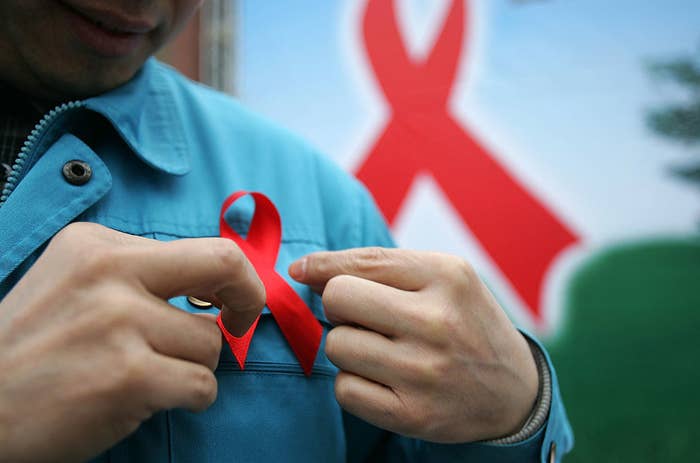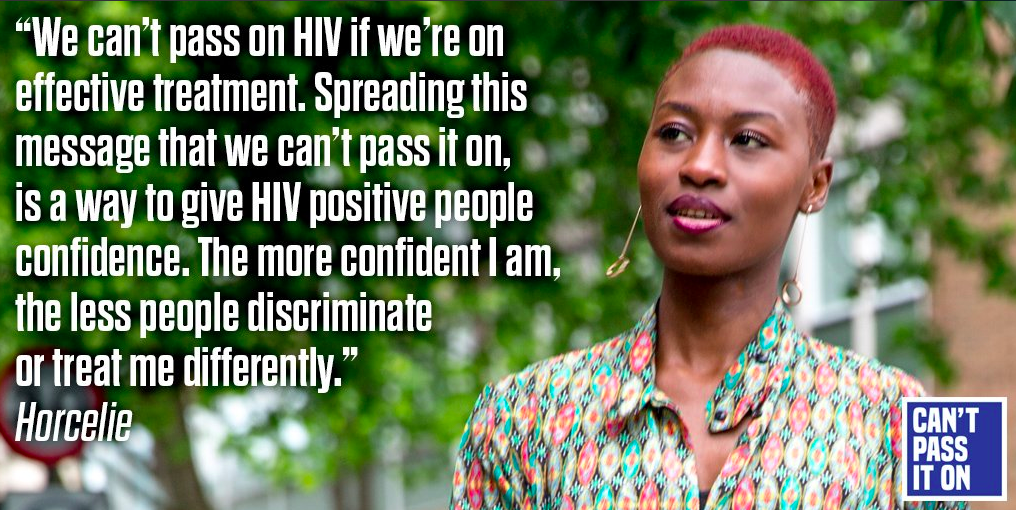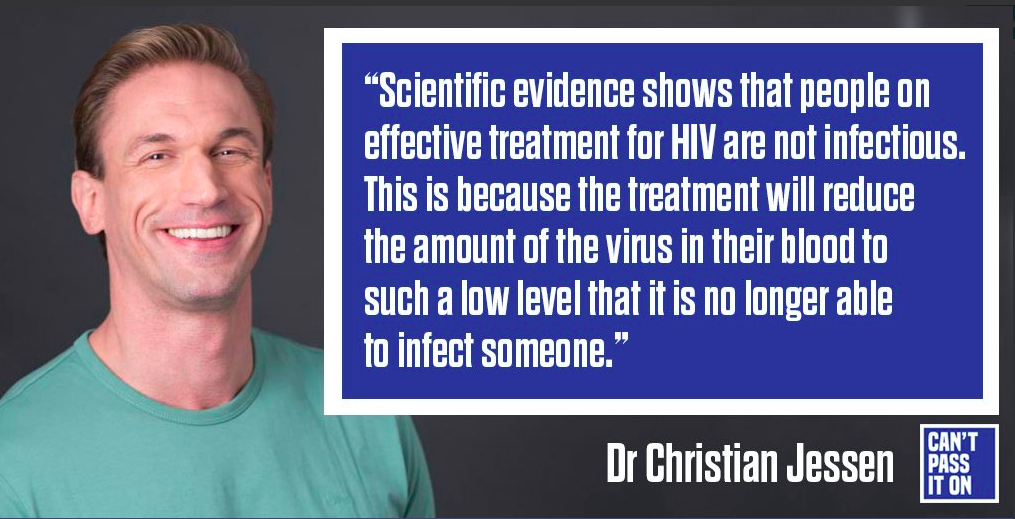
Nearly 40 years since the first AIDS cases were identified, the overwhelming majority of people do not know the most important fact about HIV transmission today, according to a new survey.
When treated with effective medication, people with HIV cannot pass the virus on sexually. Even if they have repeated sex without a condom with someone who is HIV-negative, that person will remain HIV-negative.
But despite this revolutionary change in the treatment of the virus, 91% of the British public were either unaware of this fact or disbelieved it, Britain's largest HIV charity has found. Although gay people who responded were more knowledgeable, still only a quarter accepted this fact as true.
Asked whether they would be comfortable going on a date with someone who is HIV-positive, 39% of the overall respondents said they would be uncomfortable, 18% didn't know, and 42% said they would be comfortable. Only 14% of gay respondents said they would be uncomfortable.
I'm backing @THTorguk's #CantPassItOn campaign, because it's scientific fact: people on effective treatment can’t p… https://t.co/wMHHjkX3NW
The Terrence Higgins Trust, which commissioned YouGov to survey more than 2,000 people, was so concerned by the lack of awareness, it launched a new campaign called "Can't Pass It On" to inform the public and in turn try to reduce stigma and fear surrounding the condition.
The campaign, which is backed by celebrities such as Stephen Fry, Dr Christian Jessen, and the band Years & Years, is the latest attempt to inform the public of this revolutionary transmission fact. Last year an international group of HIV charities launched an effort to educate people with a campaign called "U = U", or "Undetectable = Uninfectious".
This equation refers to the same findings on which today's campaign is based, from a vast European study called PARTNER. It concluded last year that when an HIV-positive person is effectively treated with antiretroviral drugs, the virus is so suppressed as to become "undetectable", so there isn't enough of the virus in bodily fluids to transmit the virus to others, even without a condom. They therefore become uninfectious. (In Britain approximately 90% of people diagnosed with HIV are on treatment, about 90% of whom are undetectable.)

The figures involved in this study were categorical. Over several years, 888 couples were monitored. These couples comprised one person with HIV who was on effective treatment (and therefore undetectable) and one person without HIV. Not a single person was infected, despite 58,000 acts of sex without condoms between the couples.
This has provided a definitive account of the efficacy of treatment. But nearly 10 years ago, a now-famous statement was published by the leading authorities in HIV in Switzerland that said: "An HIV-infected person on antiretroviral therapy with completely suppressed viraemia ('effective ART') is not sexually infectious, i.e. cannot transmit HIV through sexual contact.”
The "Swiss statement", as it's known, also included some caveats, such as that the HIV-positive person would need to not have other STIs and should receive regular monitoring to ensure the virus continued to be effectively suppressed. And it did not imply that, at that time, they believed there to be zero risk of transmission, but rather a negligible risk (1 in 100,000).

But the radical message that has now been cemented with a "zero risk of transmission" rule has not, according to the Terrence Higgins Trust, reached the general public.
However, despite repeated attempts by BuzzFeed News, the charity's director of marketing and communications Dominic Edwardes would not be drawn on who was responsible for the failure to get the message across – for example, the British government, the NHS, or the Terrence Higgins Trust itself.
"I'm not surprised that there's little knowledge on this subject but I think it's absolutely important that we really try to improve people's knowledge, and it's something that people with HIV are telling us loud and clear, that they want this message to become more widely known," said Edwardes.
"The government have limited resources which have been targeted at people most in need. This campaign is complementary to that. We're keen to get this message out clearly and boldly. Evidence has been building for many years but it's only after the PARTNER study that we can really confidently say that someone on effective treatment cannot pass on HIV through sexual transmission."

Edwardes also defended the charity's decision to launch a campaign a year after the PARTNER study.
"Our messaging has kept pace with the evidence which has become available," he said. "The Swiss statement had too many caveats to really provide a simple piece of information to the public." Asked by BuzzFeed News whether the government should launch a public information campaign about the latest information about HIV, Edwardes said: "We would welcome any initiative that increases knowledge around HIV."
If the public were aware of the impossibility of sexual transmission when on effective treatment, "We would see a reduction in stigma across society because that's based on misinformation," he said, explaining that this will probably take years, in part because it involves unpicking outdated messages and also because the new information is "counterintuitive".
"People find it a challenging message that you're less likely to get HIV from someone who knows they have HIV than from someone who doesn't know their HIV status."
